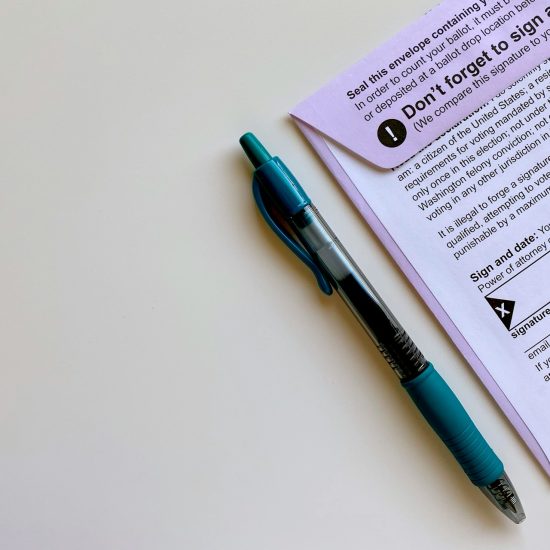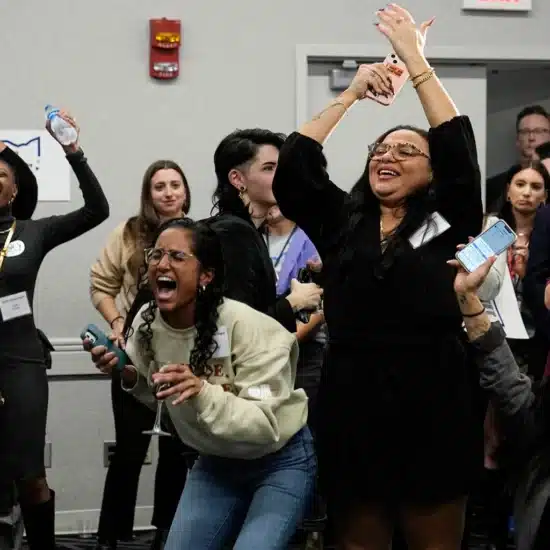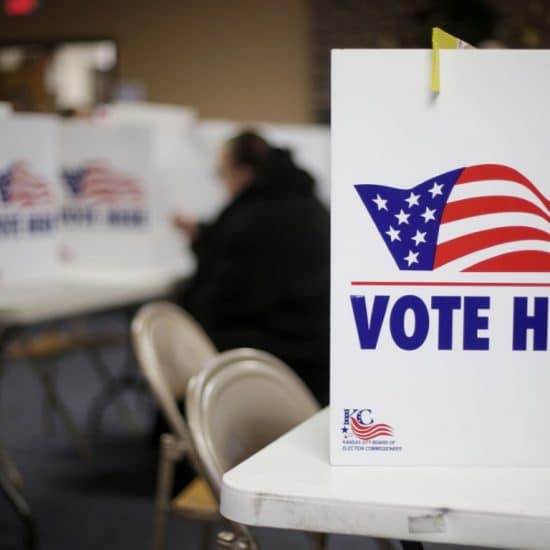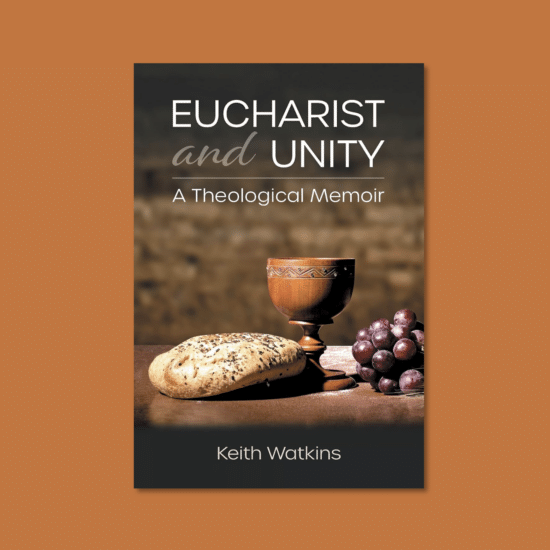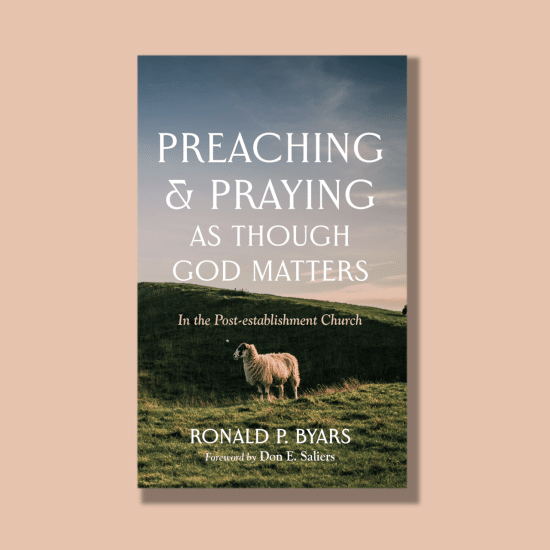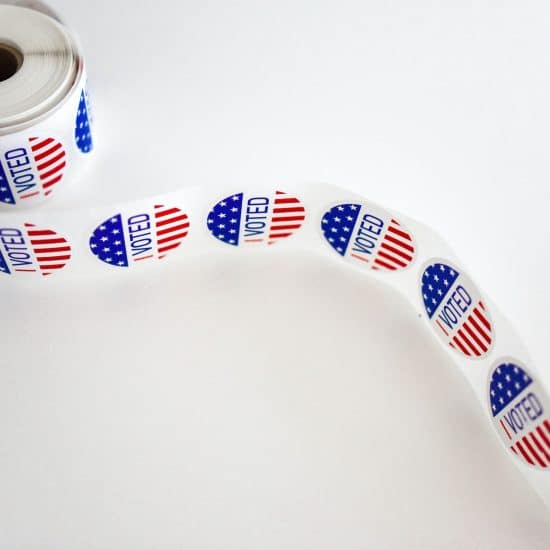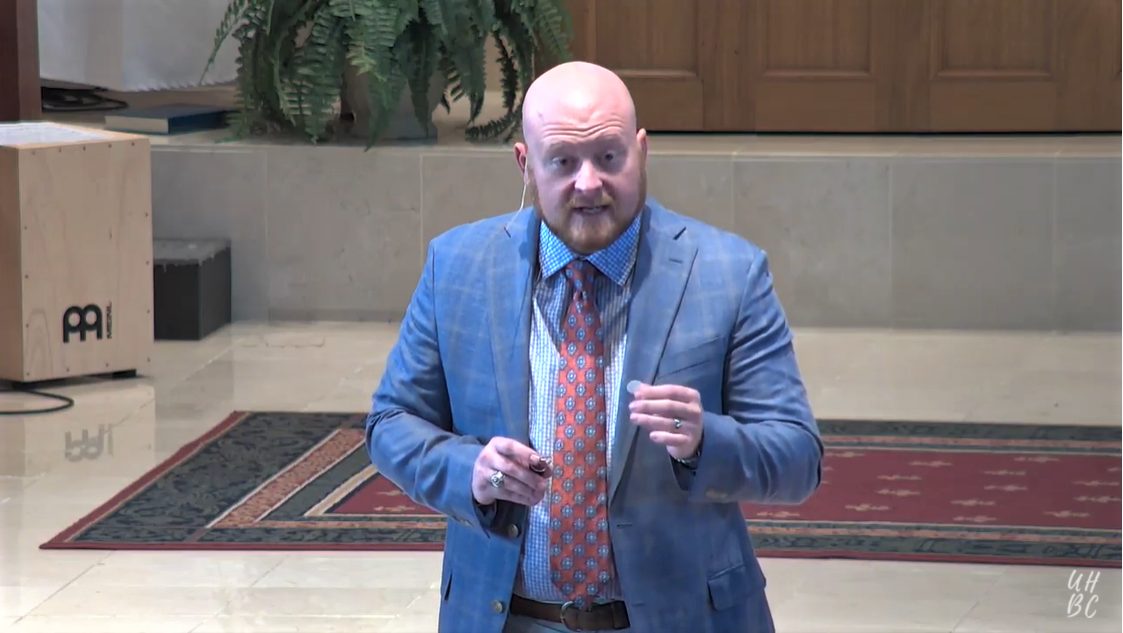
As millions of Americans line up — some in church buildings — to exercise their democratic right to vote, dozens of churches decided to open their buildings to celebrate the sacred rite of communion. Dubbed “Election Day Communion,” this multi-year effort encourages churches to not only declare Christian unity despite partisan divides but also to announce that regardless who wins Jesus reigns as Lord.
“I am exceedingly thankful for a time to pause for worship and prayer,” Nolan Porter, senior pastor at University Heights Baptist Church in Springfield, Missouri, told Word&Way after holding a midday communion service on Election Day.
“I have a preferred candidate, as do all people who are participating in the election, but it was meaningful for me to remember that the Lord is at work in the world and regardless of today’s results, that work continues,” he added. “It was also meaningful to voice the fact that we all know but sometimes forget: God’s Kingdom is full of people from all stripes and tribes and political affiliations.”

Screengrab as Nolan Porter leads an Election Day Communion service at University Heights Baptist Church in Springfield, Missouri, on Nov. 3, 2020.
UHBC held its service midday Tuesday, with some people attending in person while socially distant and others watching online amid the coronavirus pandemic. The 20-minute special service included prayers, a few hymns, a reading from Matthew 5:1-16, and some comments by Porter as he led the time of communion.
“In the midst of the divisiveness and hate and vitriol of another political election season, may we be united under the lordship of Jesus,” Porter said during the service. “May the bride of Christ, his Church, show us and help us to show a better way. May we as followers of Jesus be the salt of the earth and the light of the world.”
Porter said Christians today need the Lord’s Supper for the same reasons that the first disciples need it: “to gain strength from the bread and from the cup.”
“It’s a reminder to us as we gather this afternoon and as we have either already voted or maybe some of us voting later today that we vote differently. We think differently about things,” Porter said. “And yet we are called together as the bride of Christ to represent Jesus in the world.”
He added that Christians need to find ways to come together “under his lordship in spite of differences and in spite of disagreements” since “we already have a Messiah” and “do not need another.”
“May we be more passionate about bringing hope and restoration into people’s lives than proving my side is right politically,” he added. “May we be more passionate about the lamb of God that takes away the sin of the world than an elephant or a donkey. May we not sell out our faith, may we not sell out the kingdom of God for political power or control or authority or political manipulation in our culture while we cheapen the work of Jesus on the cross and in the resurrection.”
A nondenominational, nonpartisan effort, Election Day Communion launched in 2012 as an initiative by two Mennonite pastors and a lay Episcopalian. While several Baptist churches participated in that election cycle and ones since along with churches from multiple denominations, the effort remains more common in Mennonite and other historic peace church traditions.
Hundreds of churches across the country held Election Day Communion services in 2012 and 2016. While fewer planned services this year due to coronavirus, the divides — physical and political — the pandemic sparked might make the service’s witness more potent, as Porter acknowledged.
Porter lamented during the service that because of coronavirus some congregants watched online and those present couldn’t pass the plate and serve one another — instead using prepackaged communion elements that he admitted included bread that didn’t really taste good. Those extra division and difficulties from this pandemic year added to those of the election season, but Porter said that while “things are different in these days” he was “thankful that we still get to gather this afternoon.”
That is the whole point of Election Day Communion: both lament the divisions and also come together for worship that provides witness of a better way.

